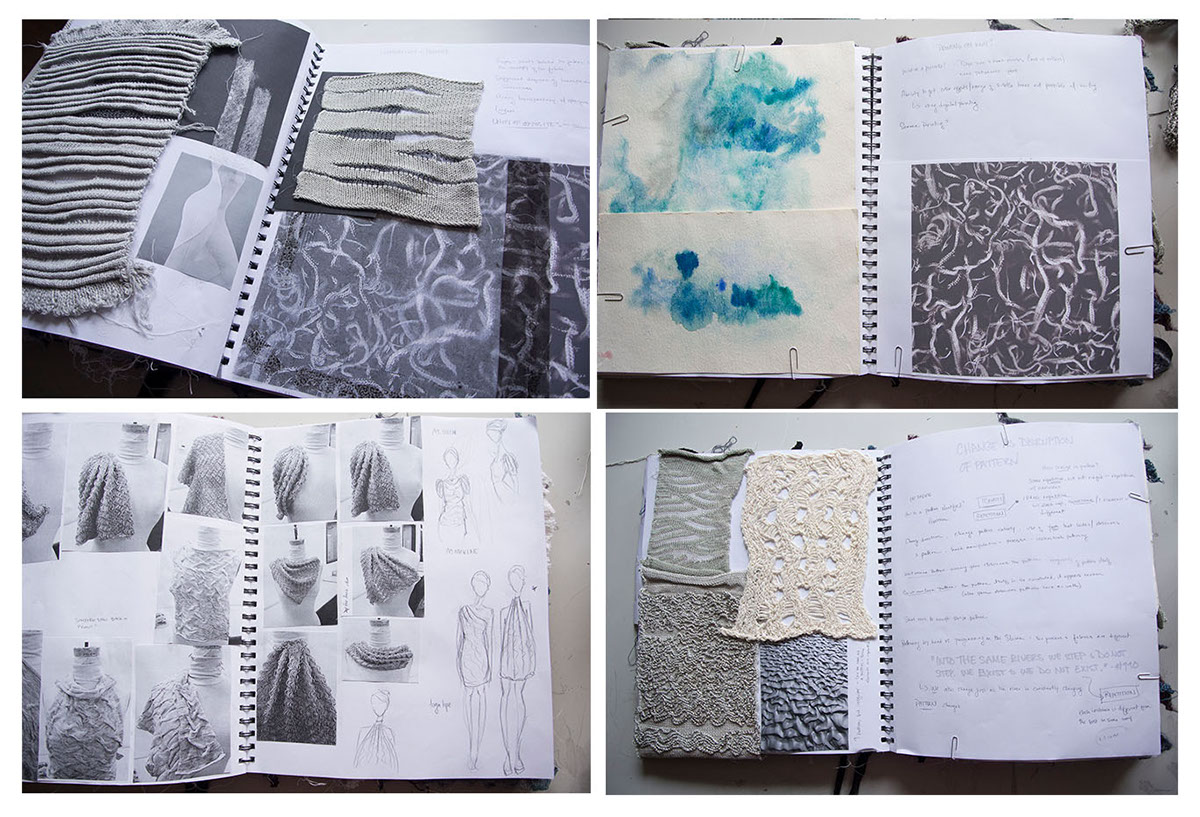"All is flux. Nothing stays still," is a fragment from the writings of Heraclitus (circa 500 BCE). Immediately this blanket statement conjures notions of movement and flow, but also brings into question identity. How does one thing maintain identity through change while another thing does not?

Because Heraclitus’ writings only exist as fragments, they are vague suggestions of ideas, rather than flushed out philosophical arguments. To me, this provides an excellent base for design. It allows fabric to explore some of the inherent contradictions and haziness of his ideas.
So far, fabric development has explored the idea of repetition— an important element in knitting (or any textile design). But here the idea is that each repetition is different or has changed in some way. This is evidenced in some of the visual references I pulled for this project— natural patterns typically have some kind of repeating element, but each repeat has changed enough for the pattern to appear organic. In developing fabric with this in mind, I’ve been looking at interpreting change as a disruption / change of pattern. This could mean making slight changes in the pattern repeat itself, working with no pattern but a specific technique or sequence of techniques, using yarns and materials to distort a pattern, or creating fabrics with patterning so overwhelming it appears random.
Fabrics are knit on Shima Seiki computerized knitting machines and domestic knitting machines.
"It is in changing that things find repose."




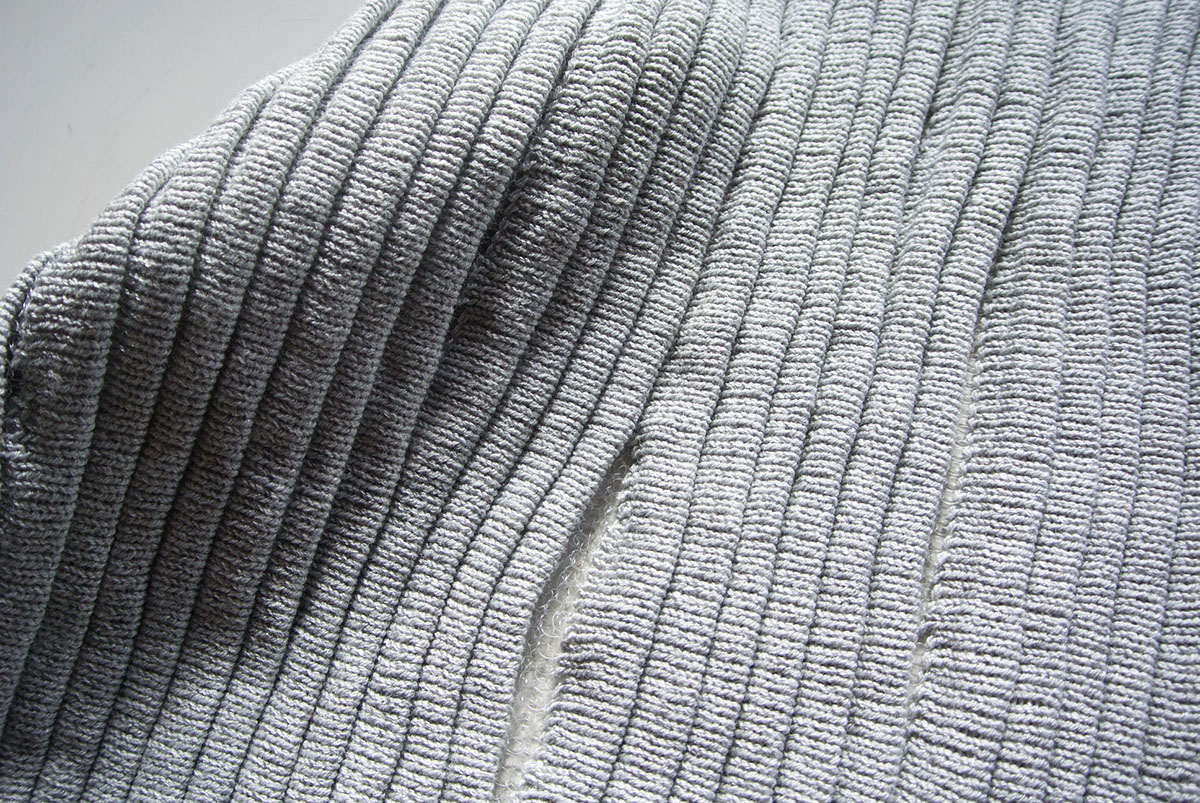



"It throws apart and brings it together again; it advances and retires."


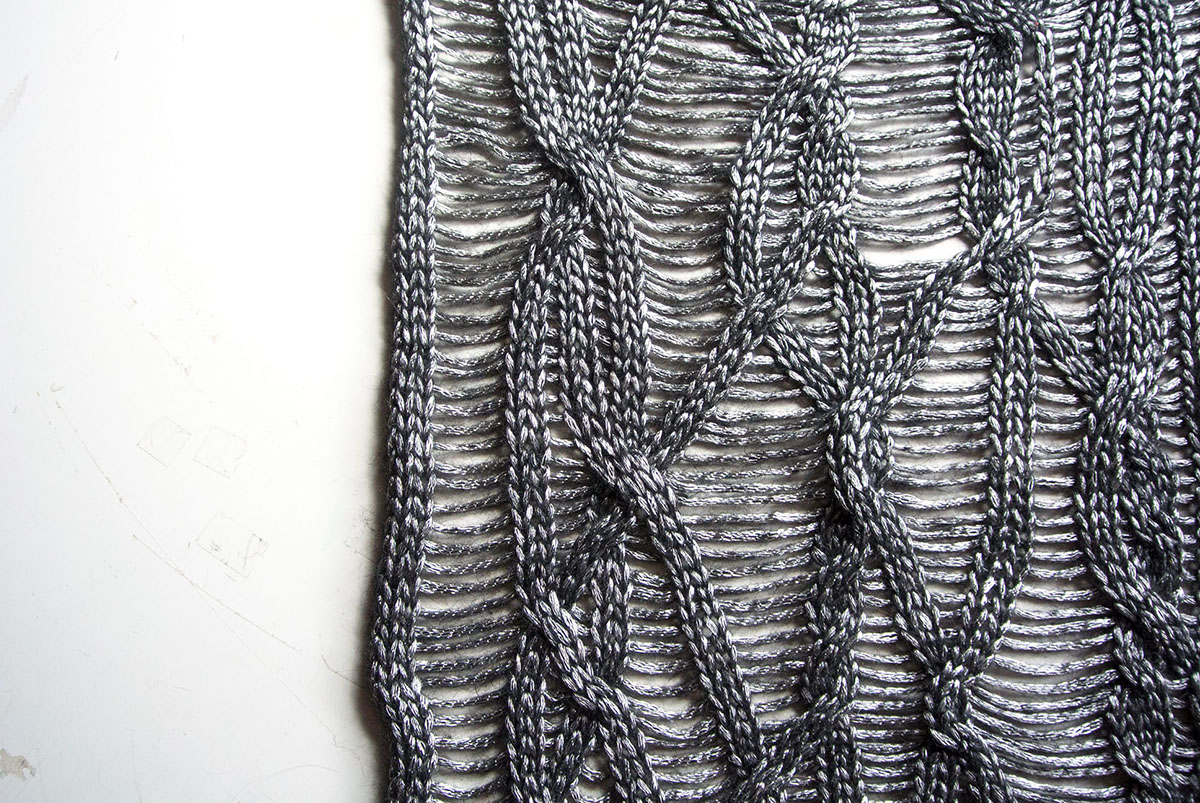
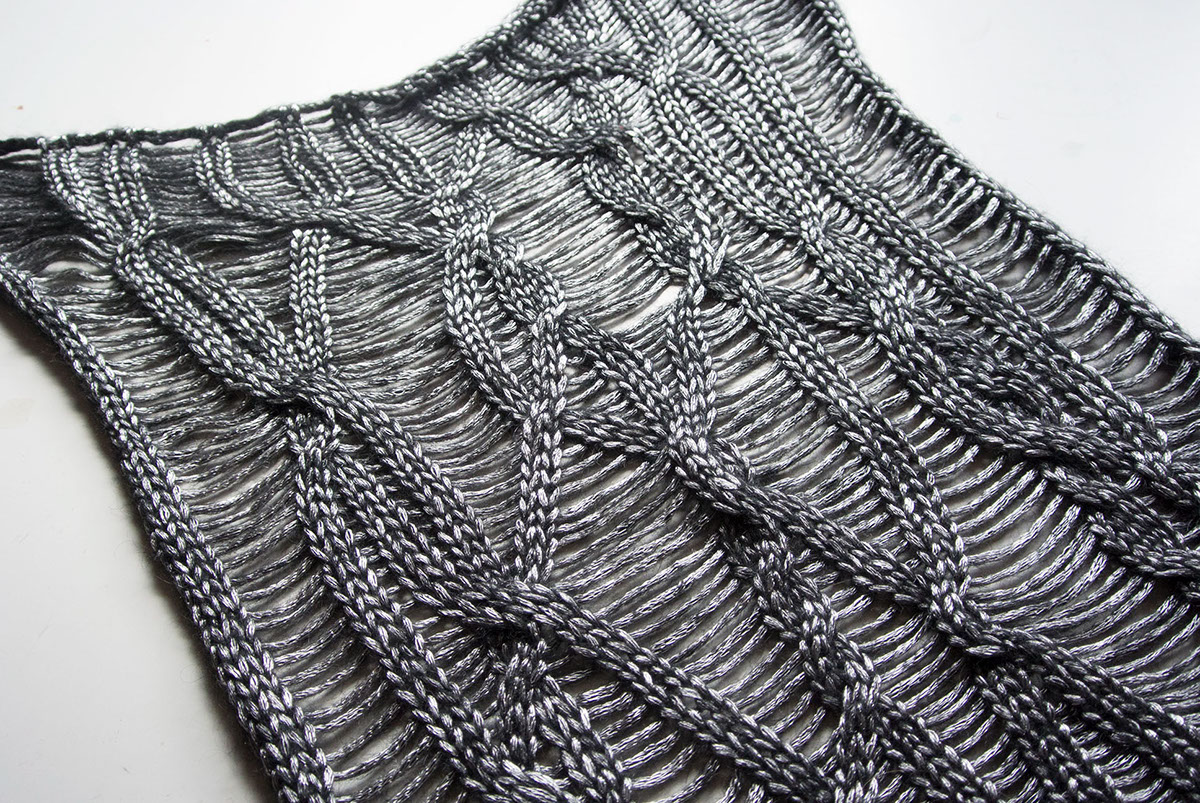
"Opposition brings concord. Out of discord comes the fairest harmony."


"We step and we do not step into the same rivers. We exist and we do not exist."








"It is other and still other waters that are flowing."
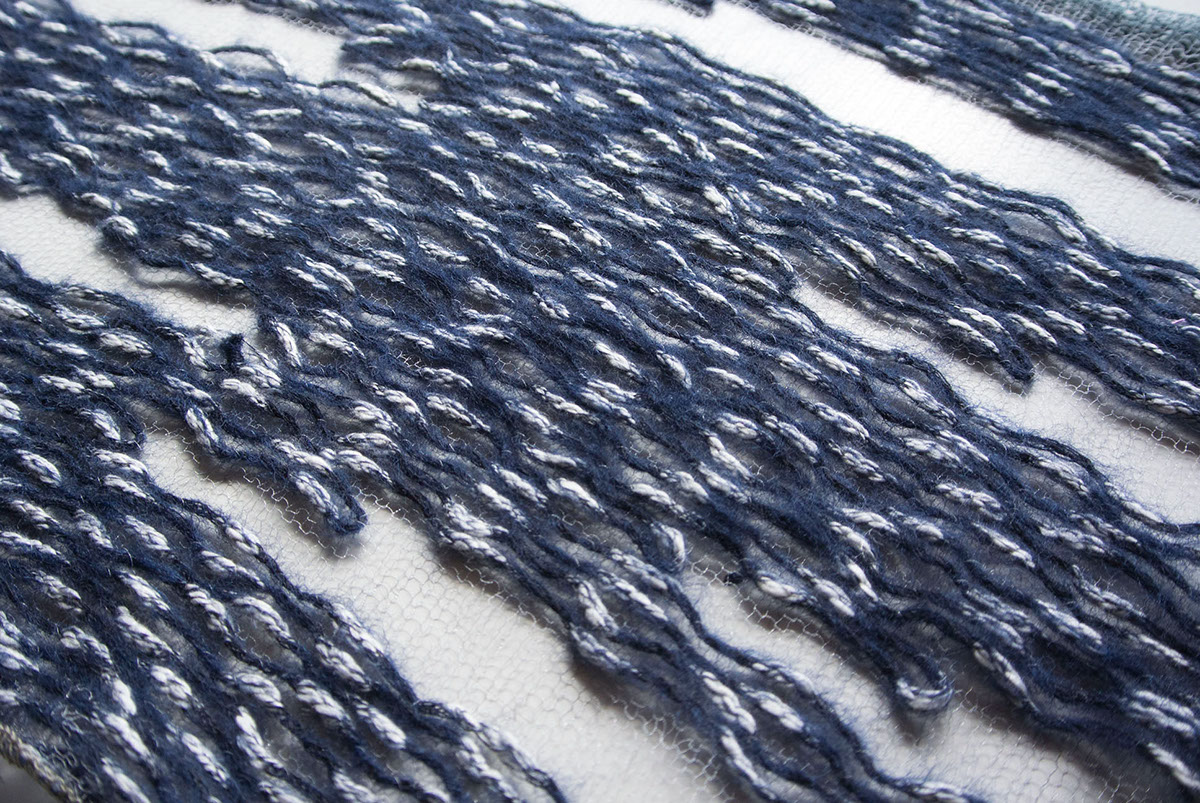
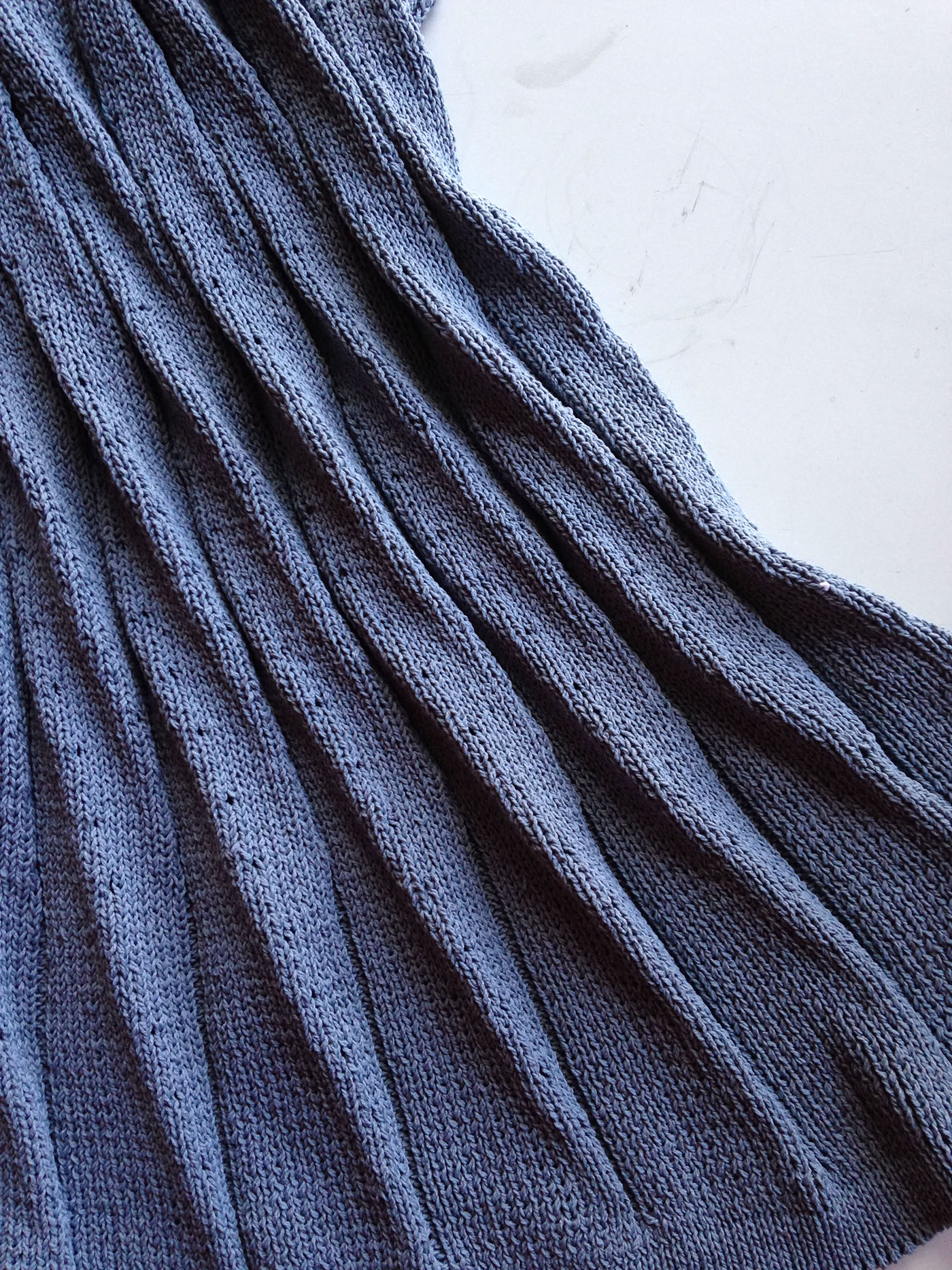







GARMENTS




PROCESS:

